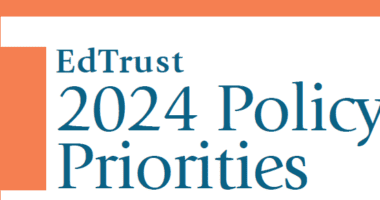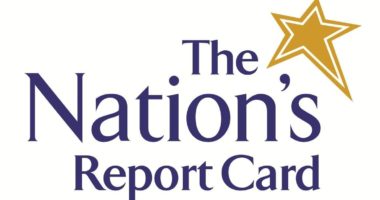“Congress, Keep the Backbone of ESEA Strong!”
Coalition of business, civil rights and disabilities groups jointly calls for assessment, public reporting, and accountability for student outcomes in a reauthorized ESEA.
WASHINGTON (February 2, 2015) – Today, a coalition of leaders from the business, education, civil rights, and disability communities issued a joint letter calling on Congress to ensure that a reauthorized Elementary and Secondary Education Act (ESEA) includes:
- Annual, statewide assessments of all students grades three to eight, and at least once in high school;
- Public reporting of assessment results in a transparent and accessible way; and
- Accountability systems that expect faster improvement for the groups of children who have been traditionally underserved, and prompt action when any group of students underperforms.
The organizations represent a diverse set of perspectives and, they say, “We may disagree on many things. But we come together at this critical moment—as many of us did back in 2001—because of our common conviction that America cannot afford to keep squandering the potential of so many of her children.” They also released joint principles for keeping the essential backbone of a new Elementary and Secondary Education Act strong: “Assessment, Transparency, and Accountability: Three Critical Elements of a Bipartisan Approach to Advancing Excellence and Equity.”
“This law is as relevant today as when it was first enacted at the height of the civil rights movement,” said Wade Henderson, CEO, The Leadership Conference on Civil and Human Rights. “Ensuring all students learn reading and math is a nonpartisan issue with profound moral and economic ramifications. The principles we agree on are a reasonable set of standards that must be central to the ESEA reauthorization to help ensure students of color, students learning English, and students with disabilities have a fair shot at a high-quality education.”
“This is a critical moment for our organizations to advocate for policies that will ensure children are progressing in the classroom and reaching their full potential,” said Business Roundtable president John Engler. “Our country’s success depends on educated students who can compete with students across the world. Congress must do its part and put into place laws that set up students for success.”
The coalition includes the Leadership Conference on Civil and Human Rights, The Education Trust, National Council of La Raza, Business Roundtable, National Center for Learning Disabilities, Council of Parent Attorneys and Advocates, Democrats for Education Reform, and the U.S. Chamber of Commerce. Its members will work together, and with other organizations that agree with the same principles, to make sure that any new law advances the achievement of all children, especially the nation’s most vulnerable.
Kati Haycock, president of The Education Trust, noted, “These core ideas of accountability, public reporting and annual assessments helped usher in the fastest improvements in the achievement of low-income children and children of color since 1980. School leaders and teachers were able to see where improvements were needed and target resources; parents had the necessary data needed to make informed decisions about their children’s education; and taxpayers knew that in exchange for the billions of dollars invested, schools were accountable for results. Sure, there are many things to improve about the original law, but that core idea of accountability for all children isn’t one of them.”
“Only a few decades ago, students with disabilities were excluded from school or relegated to separate classrooms, isolated from all other students,” said James H. Wendorf, executive director of the National Center for Learning Disabilities. He added, “Today the majority of students with disabilities spend most of their day learning alongside their classmates without disabilities, a key factor in increasing academic achievement of our students. Inclusion drives opportunity for our students. The National Center for Learning Disabilities is proud to join other civil rights organizations that share our vision for building an inclusive education system that provides opportunity for all students. The Equity and Excellence Principles ensure that states and schools will focus on the most critical issues facing students with disabilities: closing achievement gaps and increasing graduation rates.”
The full text of the groups’ letter and its Equity and Excellence Principles is below.







